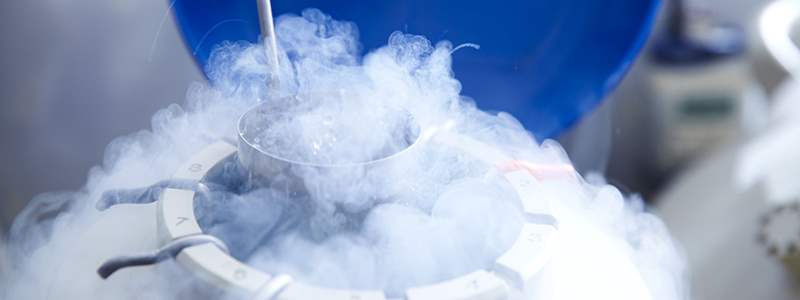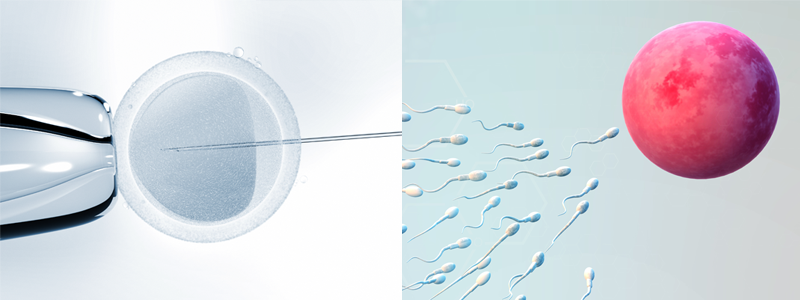Myth:
Egg freeing is a new procedure
Fact:
Egg freezing has been around for over 30 years, and the first baby to be born from frozen eggs was born in 1986. Over the last 3 decades the practice has been developed and refined so that it is now much more advanced than previously.
Myth:
Egg freezing is not successful
Fact:
The success rates of treatment after egg freezing have vastly increased since Vitrification technology was developed in the 2000s. In Vitrification, fast-freezing is used so that eggs are frozen incredibly rapidly. This prevents the formation of damaging ice crystals, which can cause damage to the eggs upon thawing. Eggs frozen through vitrification are more likely to survive the thawing process, with an over 90% survival rate for eggs frozen using vitrification when a woman is under 35. The success rate of IVF with vitrified eggs is comparable to the success rates with fresh eggs. The likelihood of treatment succeeding depends greatly on the age at which eggs are frozen and other individual factors.
Myth:
No babies have been born from frozen eggs
Fact:
The most recent scientific data from Spain demonstrates how successful egg freezing has become. The Instituto Valenciano de Infertilidad, Universidad de Valencia in Spain has published research demonstrating that of 3407 cycles of treatment for women freezing eggs for their own use, there were 1031 live births. This is a success rate similar to that of using fresh eggs in fertility treatment. In addition, the success rates of frozen eggs used for donation are even higher. It is indisputable that worldwide, thousands of babies have been born through from frozen eggs. In the UK, our regulator, the HFEA does not differentiate in its data collection between eggs frozen using the old methods and the new method of Vitrification. This makes the data difficult to interpret and our Medical Director, Professor Geeta Nargund, has called on the HFEA to improve its data collection on egg freezing.
Myth:
Egg freezing is ‘experimental’
Fact:
Egg freezing used to be considered experimental by the American Society of Reproductive Medicine, but in 2012 this title was revoked, as success rates had increased so significantly since the introduction of Vitrification.
Myth:
Freezing eggs guarantees a baby
Fact:
Freezing eggs may increase your chances of having a baby later in life, but it is no guarantee of having a child. Generally, if a woman freezes 12 eggs before the age of 35, then she has a 50% chance of having baby with those eggs. Egg freezing is not an insurance policy, but it is a powerful tool to help give more choice to women.
Myth:
You should think about freezing your eggs if you have not had children by your 40s
Fact:
To give the best chance of freezing high quality eggs, it is best that egg freezing takes place before a woman reaches 35. This is because egg quantity and quality decreases over time. It is still possible to freeze eggs in the late 30s and early 40s, but these are less likely to be of high enough quality to result in pregnancy.
Myth:
Women who freeze their eggs have chosen their career over children
Fact:
Women choose to freeze their eggs for all sorts of reasons, both medical and social. Many women choose to freeze their eggs due to a medical diagnosis, such as cancer. Others choose to freeze because of they do not believe that they have the right environment to have a child, for example, due to financial constraints, not having a partner or where there are other commitments to be balanced. There are lots of different reasons and every person approaches egg freezing with a unique perspective.






